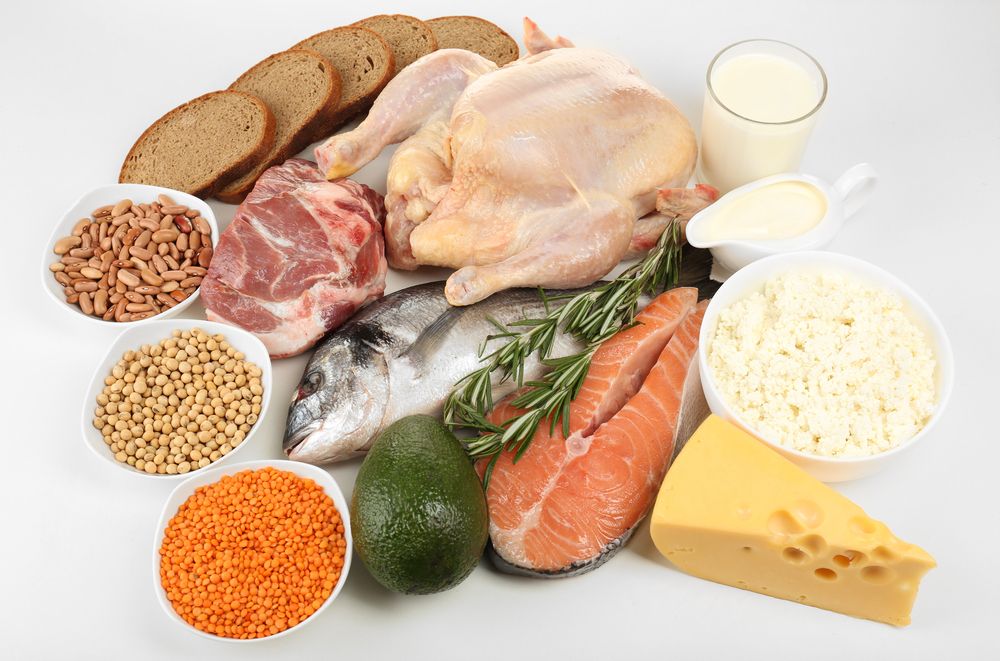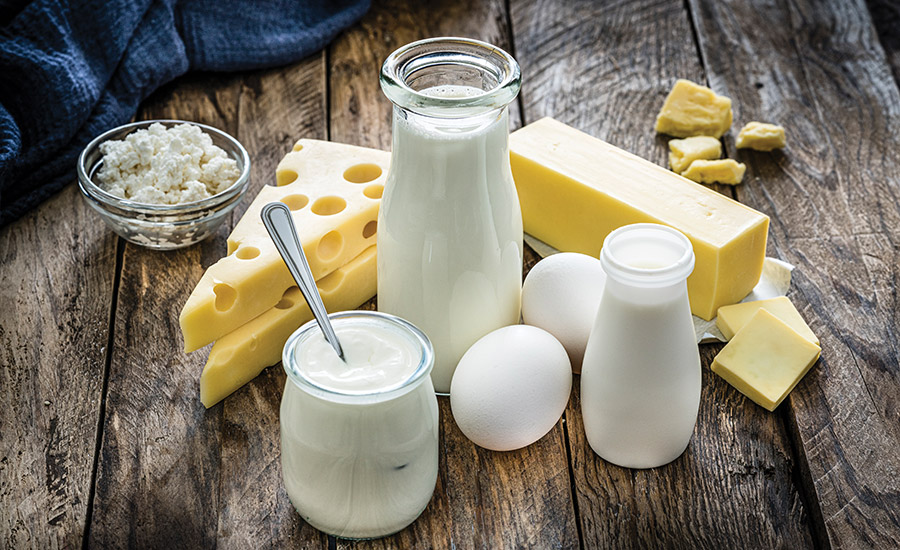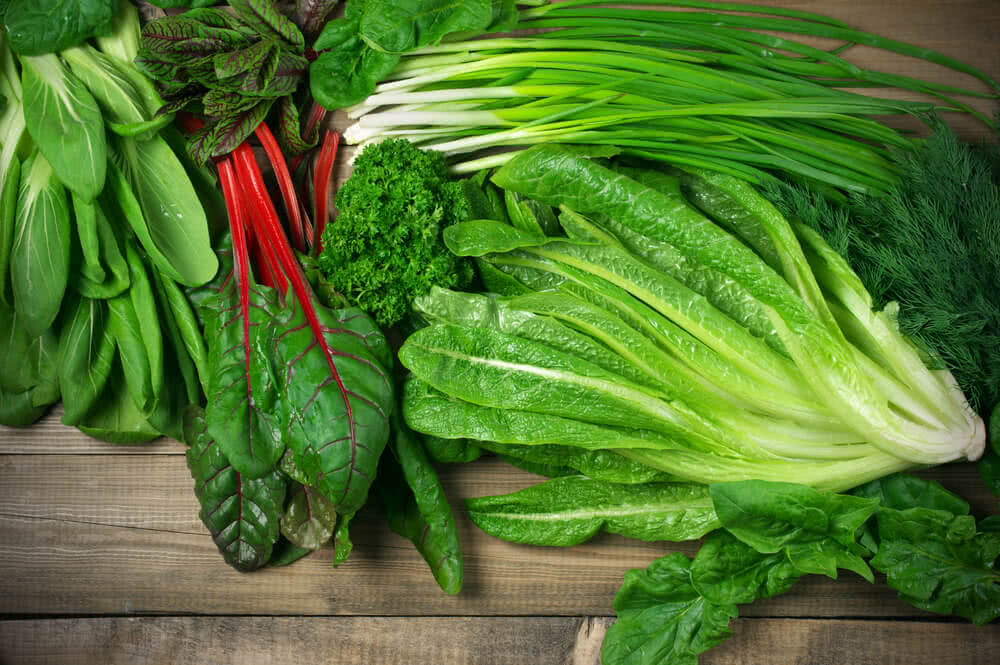.jpeg)
After childbirth, most mothers can produce a healthy supply of breast milk for their babies. Still, a small percentage of women will face challenges in producing adequate breast milk. With the vast majority of healthcare providers suggesting that breastfeeding is the best option, soon-to-be and new mothers have multiple questions and concerns on the topic. Here, we will discuss the importance of breastfeeding and the best foods for breastfeeding mothers.
Why Breastfeeding is Necessary?
If you are lactating (or will be doing so soon), then you should know that breast milk, in any quantity, is wonderful for babies! The range of benefits of breastfeeding includes:

- Protection against infection and allergy.
- Prevention against atopy (genetic tendency to develop allergic diseases like asthma) and childhood obesity.
Breastfeeding is also associated with better cognitive development. New research also indicates that breastfeeding helps reinforce the health and richness of the gut microbiota of the newborn baby. The gut microbiota plays a very important role in human health and wellbeing.

Some studies suggest exclusive breastfeeding for the first six months, while others suggest that introducing food at three months may be alright. However, the bottom line is that breast milk remains the best meal for the baby for at least the first three months after birth. The general recommendation is that breastfeeding should continue for at least 12 months.
Breastfeeding has its benefits for mothers too! It helps in the uterine contraction and quick cessation of bleeding after the delivery. It can also reduce the risk of ovarian and breast cancers.
Breastfeeding Tips
Check The Latch!
It is often the case that the baby is unable to latch the breast correctly. The breasts produce breast milk in response to the baby’s suckling. So, if the baby is unable to latch appropriately, both breastfeeding and breast milk production will suffer. If you are unsure whether your baby is latching on well, have someone evaluate your breastfeeding technique. A nurse, your doctor, and even family members or friends with past experience will probably be able to help.

Breastfeeding Duration and Frequency
- Newborns need to breastfeed every 2 to 3 hours, every day. This will ensure that they are getting an adequate amount of nutrients and energy.
- Your newborn should nurse for approximately 10 minutes on each side each time you are breastfeeding him or her. For breastfeeding durations less than 5 minutes, the baby might not be able to get adequate amounts of breast milk.
- It’s best to breastfeed your baby on demand whenever he or she shows signs of hunger. And, if you have a sleepy baby, wake him or her up at least every 3 hours to breastfeed.

Moreover, the milk needs to be drained from the breasts for more milk production. Therefore, even if some mothers experience inadequate milk production in the beginning, regularly feeding the baby might eventually resolve the issue.
Breastfeeding very frequently, especially during the first few weeks, will ensure your baby is getting enough breast milk. This will also help you bond closely with your newborn.
The Diet
What makes breast milk the first universal suggestion for the newborns is that it contains all nutrients that a baby needs for its growth and development, i.e. carbs, proteins, fats, vitamins, minerals, and prebiotics. These nutrients pass from the mother to the child.

Breastfeeding mothers require certain key nutrients to ensure that the process of lactation is smooth, both for the child as well as for her. Without the appropriate nutrients, breast milk production may suffer. Producing breast milk is hard work for your body and a thumb rule to keep in mind is that when breastfeeding, you need 400-500kcal extra per day.
What are the Best Foods for Breastfeeding Mothers?
Best foods for breastfeeding mothers must contain:
- Monounsaturated fatty acids ( MUFA) and Polyunsaturated fatty acids (PUFA) (20mg each/day)
- Proteins (around 100mg/day)
- Thiamine, or Vitamin B1 (1.25mg/day)
- Pyridoxine, or Vitamin B6 (2.5mg/day)
- Folates, or Vitamin B9 (300 mcg/day)
- Calcium (1200mg/day)
- Zinc (12mg/day)

In order to ensure that these nutrients are present in sufficient quantities in the mother’s diet, the inclusion of certain food groups is essential. Some food groups that a new mother’s diet should definitely include are as follows:
Dairy Products
Dairy products such as milk, paneer, cheese, eggs, etc., are a rich source of protein and calcium. These foods help form casein in breast milk, which aids digestion and appropriate absorption of other nutrients. Adequate protein intake maintains the quantity and balance of proteins (approximately 60% is whey, while 40% is casein) in the breast milk.

Green and Leafy Vegetables
Broccoli, kale, peas, mustard greens, etc., are all rich in proteins and minerals. These foods help boost the nutritional content of breast milk. The fiber in these vegetables is particularly important for the maintenance of good gut health. Fiber also helps maintain the mother’s digestive health.

Pulses and Legumes
These have high levels of minerals such as iron, folate, phosphorous, zinc, and B complex vitamins. Pulses and legumes are foods which are rich in proteins and low in fats. These are one of the best foods for breastfeeding as it provides a well-balanced diet for a new mother.

Seafood
Rich in iodine and other minerals, seafood can be an interesting addition to the daily diet for those who are not allergic to them. Seafood is an important part of any healthy, well-balanced breastfeeding diet plans.
Fish is one of the best foods for breastfeeding mothers as it is rich in protein, MUFA, and PUFA and has low quantities of saturated fats. It contains many nutrients including iodine, vitamin D, and omega-3 fatty acids such as docosahexaenoic acid (DHA). The nutrients in fish when passed to the baby through breast milk, help in the development of the nervous system, brain and eyes.
What if I’m not Producing enough Breast Milk?
If you are not lactating sufficiently or at all, it is alright to bottle feed your baby. Having said that, if your baby is latching on correctly, and breastfeeding every 2 to 3 hours around the clock, but you’re still not seeing an increase in your breast milk supply, it’s time to see an expert. There may be a medical issue that’s causing a true low milk supply. The idea is to find the underlying cause and treat it.
Foods to Avoid While Breastfeeding
Lactation is a time when the mother has to be particularly aware of her diet as whatever she consumes, the baby also consumes indirectly. The adult human body is extremely robust and can effectively detoxify itself but a newborn baby’s body is extremely fragile and has to be provided with nothing less than the purest and most nutritious food there is: Breast milk!
However, there are some foods which should be avoided or consumed in moderation while breastfeeding.
- Just as when pregnant, breastfeeding mothers should be careful with caffeine, alcohol, and medication. Moderate your caffeine intake and do not consume alcohol while breastfeeding.
- Keeping yourself hydrated throughout the day with water and other healthy fluids is essential.
- And definitely, do not try any diets or medications to shed your pregnancy weight faster.
- Substances which are considered unhealthy on a general level such as salt, butter, and ghee are fine in controlled amounts. Butter and ghee, although fattening in large amounts, are a rich source of energy which lactating mothers need in plenty.
/closeup-coffee-beans-543525262-579791c85f9b58461f1d44a6.jpg)
A mother’s diet also affects the taste of the breast milk she produces. So if the baby suddenly demonstrates a decreased affinity towards breastmilk, immediate changes should be made in the diet.
At the end of the day, every woman is unique! What we discussed here is generic guidance but your needs could vary. It is important to work closely with your nutritionist to plan your breastfeeding diet plans for your as well as the baby’s well being. Right dietary guidance will go a long way in helping you address low/no lactation issues and ensuring good breast milk quality.


.png)


